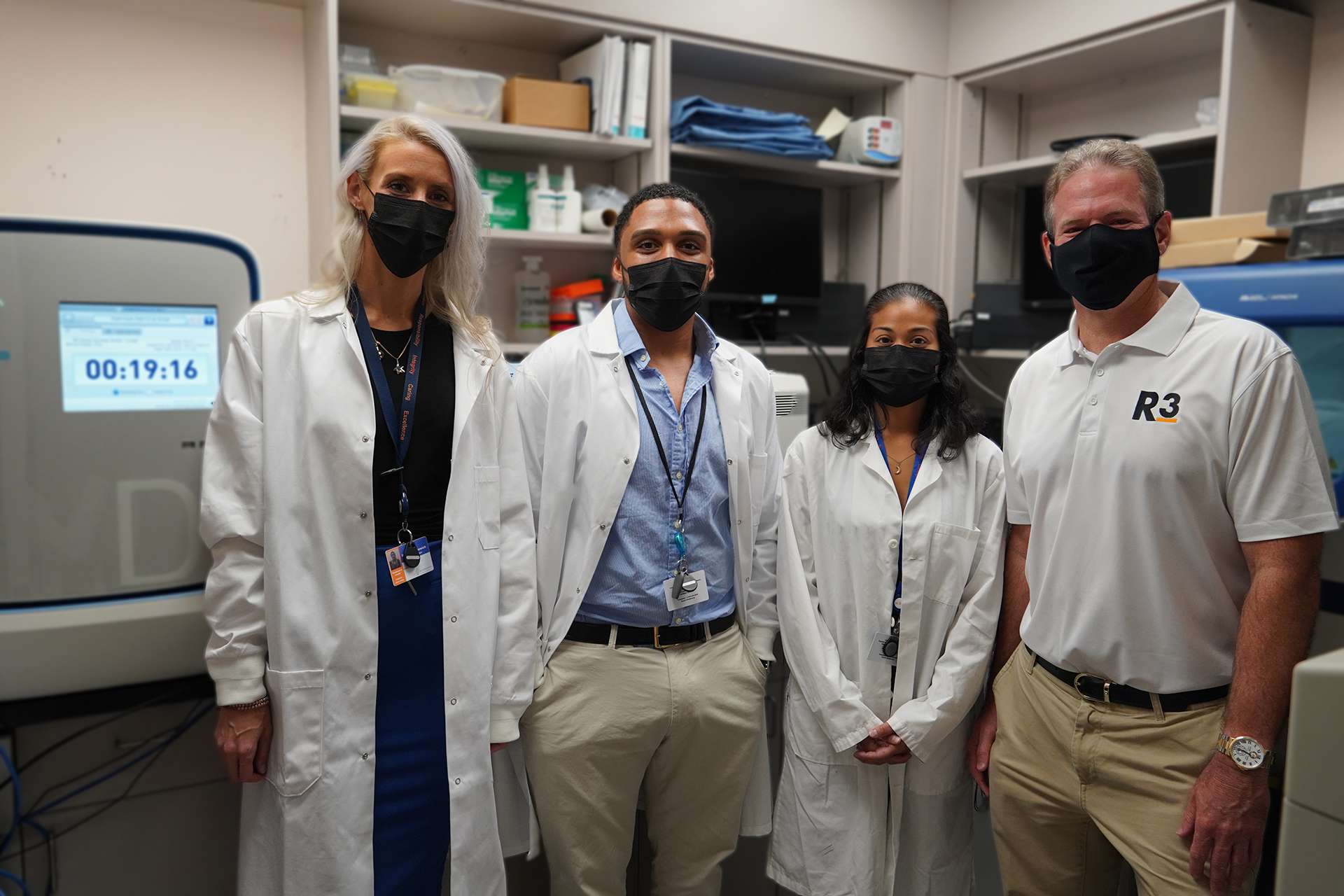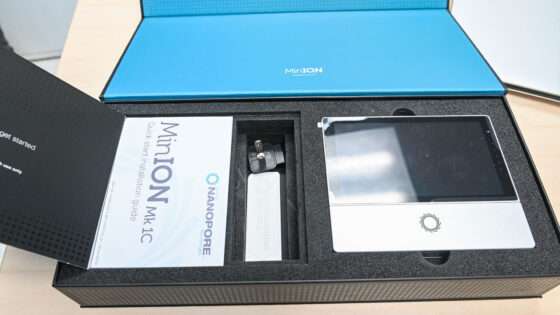The Cayman Islands Forensic Science Laboratory team at the Health Services Authority (HSA) will join scientists across the globe in being able to analyse the full genomic sequence of the SARS-CoV-2 virus from infected individuals, by utilising next-generation sequencing (NGS), an advanced technology new to the Cayman Islands.
With the procurement of two next-generation sequencers made possible through generous donations from the R3 Cayman Foundation, the Caring for Life Foundation and an anonymous private donor, the HSA will have the capability to determine the various strains of SARS-CoV-2. Additionally, the machines will be able to gain actionable insights into any transmission of SARS-CoV-2, determining the source and network.
“Next-generation sequencing is the gold standard for determining the genetic code of an organism and has revolutionised the life sciences industry,” said molecular biologist Mr. Jonathan Smellie.
“It has also allowed the scientific community to quickly respond to the COVID-19 pandemic, enabling the rapid development of diagnostic tests and the SARS-CoV-2 vaccine, as well as the identification of thousands of variations, some of which have become highly relevant due to their changed transmissibility and infectivity. The data generated from the NGS platforms will assist the Cayman Islands in determining whether outbreaks are linked to one another. This data will be uploaded to the global science database, GISAID – where we can visualise and monitor the emergence of new SARS-CoV-2 strains across the planet,” he added.
“Throughout the COVID-19 pandemic, the strength of Cayman’s public health professionals has been evident,” said R3 Chairman Mr. Bryan Hunter. “R3 is proud to support the Health Services Authority’s efforts to ready the Cayman Islands against emerging strains of the virus. The acquisition of these genetic sequencing machines will also provide the opportunity for new career opportunities as our country’s forensic science capacity expands and the local need for scientists and skilled technicians grows”.
“Prior to and throughout the COVID-19 pandemic, we have seen the ingenuity that results from public-private partnership,” said the Chief Executive Officer Ms. Lizzette Yearwood. “We are immensely grateful to the R3 Cayman Foundation, the Caring for Life Foundation and our anonymous donor for this crucial contribution, which will take us even further in our efforts to learn about and fight this virus. Additionally, we will be sharing our COVID findings with international research groups to better protect Cayman and the global community.”
Governor Martyn Roper stated, “I am very grateful to the donors who have made it possible for Cayman to procure this world-leading technology. It will play a significant role in helping us detect all COVID variants and ensure that we can use this information to help keep the people of Cayman safe as this pandemic continues to play out around the world. Obtaining this capacity on island highlights once more Cayman’s strengths as a regional leader in healthcare.”
While NGS technology provides an effective means of identifying SARS-CoV-2 strains, it can also be employed for other applications. The technology has the ability to conduct various types of genetic testing services including inherited disorder screening, cancer risk profiling and enhancing clinical microbiology. In addition, the technology opens the possibility for advanced forensic applications such as disaster victim identification, human identification and genetic genealogy.


